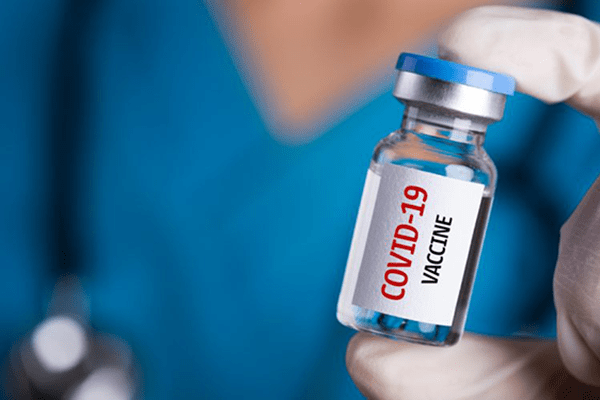Human Trials For COVID-19 Vaccine Have Begun
BREAKING NEWS
Pfizer has begun testing an experimental vaccine to combat the coronavirus in the U.S. The U.S.-based company, which is working alongside German drug maker BioNTech, said the first human participants in the U.S have been dosed with the potential vaccine, BNT162.
The team began human trials of the experimental vaccine late last month in Germany.
Research for the COVID-19 vaccine is taking place at Pfizer’s Pearl River facility, which is the company’s vaccine research and development hub in the U.S.
Sites currently dosing participants include NYU Grossman School of Medicine and the University of Maryland School of Medicine, The University of Rochester Medical Center, Rochester Regional Health, Pfizer said. Cincinnati Children’s Hospital Medical Center will begin enrollment shortly.
The experimental vaccine contains genetic material called messenger RNA, or mRNA. The mRNA is a genetic code that tells cells what to build — in this case, an antigen that may induce an immune response for the virus.
“With our unique and robust clinical study program underway, starting in Europe and now the U.S., we look forward to advancing quickly and collaboratively with our partners at BioNTech and regulatory authorities to bring a safe and efficacious vaccine to the patients who need it most,” Pfizer Chairman and CEO Albert Bourla said in a statement.
“The short, less than four-month time frame in which we’ve been able to move from preclinical studies to human testing, is extraordinary,” he added.
The trial will test the experimental vaccine on adults ages 18 to 55 in the first stage before moving on to older groups, the company said, adding it hopes to test up to 360 people. Older adults will only be immunized with a given dose level of a vaccine candidate once testing of that candidate and dose level in younger adults has provided initial evidence of safety and immunogenicity, according to Pfizer.
There are no FDA-approved therapies to treat Covid-19, and drugmakers are racing to produce a vaccine, which U.S. health officials say is expected to take at least 12 to 18 months.
The effort by Pfizer and BioNTech are among several researchers who are working on a vaccine to prevent Covid-19, which has sickened more than 3.5 million people worldwide and has killed at least 247,752 as of Monday night, according to data compiled by Johns Hopkins University.
More than 100 vaccines in development globally as of April 30, according to the World Health Organization, with at least eight vaccine candidates already in human trials.
Hopes to get a vaccine to market are high, but scientists are setting expectations low for how quickly it can happen. Developing, testing and reviewing any potential vaccine is a long, complex and expensive endeavor that could take years, global health experts say.
Biotech firm Moderna, in partnership with the National Institutes of Health, began the first human trial testing for a potential vaccine in March.
Johnson & Johnson said it is aiming to produce 600 million to 900 million doses of its potential coronavirus vaccine by the end of the first quarter of 2021 if human trials scheduled to begin in September go as planned.
Pfizer hopes to produce “millions” of vaccines by the end of this year, the company’s chief scientific officer, Dr. Mikael Dolsten, told CNBC last month. The company said Tuesday it expects to increase to “hundreds of millions” of doses next year.
Upon regulatory approval, Pfizer and BioNTech will work jointly to commercialize the vaccine worldwide.
Pfizer plans to activate its extensive manufacturing network and invest at risk in an effort to produce an approved COVID-19 vaccine as quickly as possible for those most in need around the world. The breadth of this program should allow production of millions of vaccine doses in 2020, increasing to hundreds of millions in 2021. Pfizer-owned sites in three U.S. states (Massachusetts, Michigan and Missouri) and Puurs, Belgium have been identified as manufacturing centers for COVID-19 vaccine production, with more sites to be selected.













